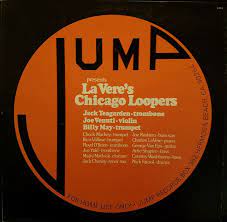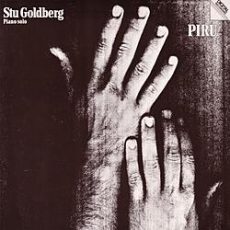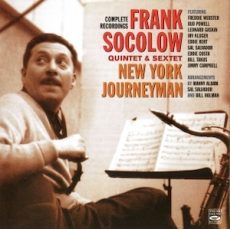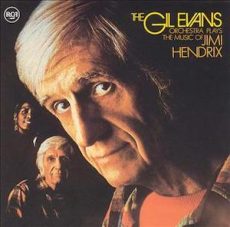
Daily Dose Of Jazz…
Robert Eberly was born Robert Eberle on July 24, 1916 in Mechanicville, New York. He changed the spelling of his surname slightly to the homonymous Eberly. His father was a policeman, sign-painter, and tavern-keeper.
He was hired by the Dorsey Brothers Orchestra in 1935 shortly after winning an amateur hour contest on Fred Allen’s radio show. He stayed with Jimmy Dorsey after Tommy left to form his own band and would be a fixture with the orchestra until drafted into the service late in 1943. In the early 1940s the Jimmy Dorsey Orchestra scored a string of hits featuring Bob and Helen O’Connell, with Eberly singing a slow, romantic baritone version of songs such as Amapola and Tangerine, followed by a lighter, up-tempo reprise by O’Connell. He recorded the original version of I’m Glad There Is You in 1942 for Dorsey’s orchestra on Decca Records. The song has become a jazz and pop standard.
In 1953, Eberly and Helen O’Connell headlined a summer replacement program for Perry Como’s CBS television show. The program also featured Ray Anthony and his orchestra.
In 1980, he had one lung removed but still continued to sing. Vocalist Bob Eberly transitioned from cancer on November 17, 1981 in Glen Burnie, Maryland, at the age of 65.
More Posts: history,instrumental,jazz,music,vocal

Daily Dose Of Jazz…
Charlie LaVere was born Charles LaVere Johnson on July 18, 1910 in Salina, Kansas to a Union Pacific Railroad blacksmith and where he first acquired an interest in music. His first musical instrument was a cornet, then later acquired an upright baritone horn, on which he learned to play many popular songs of the day. Studying piano in the 4th grade was the turning point in his decision to make it his instrument of choice.
At age twelve, after attending a Willard Robison and his Deep River Orchestra he gained an interest in jazz. He studied piano throughout high school and performed in various recitals and assemblies. At the age of eighteen he visited Oklahoma City, Oklahoma where he was introduced to Jack Teagarden, his brother Charlie Teagarden and where he studied Music at the University of Oklahoma at Norman. He performed with Frank William’s Oklahomans on campus and in local venues. He would go on to tour in 1929 during the Wall Street Crash, with brief stints in various bands including Louis Armstrong.
Relocating to Chicago, Illinois in 1932 he shared an apartment with the Teagarden’s and their spouses. He began playing regularly with Joe and Marty Marsala, Floyd Towne, Jim Barnes, Ray Biondi, Shorty Cherock, Larry Russel, Clark Galehouse, Carl Bean and Wingy Manone. He would perform his first recorded sessions supporting Wingy Manone and Teagarden in addition to leading his own bands.
After touring Texas and the mid-west with Eddie Neibauer and Dell Coon in 1934, he returned to local Chicago venues, working regularly with Joe Marsala. He assembled a multiracial group of musicians, befriended writer and jazz critic Helen Oakley, and recorded for Brunswick Records and Columbia Records. LaVere then found steady work in radio, performing on the Fibber McGee and Molly show for NBC. He also sang and arranged songs for a vocal group. Charlie briefly relocated to Fort Worth, Texas to perform in Paul Whiteman’s group and later touring throughout Texas, Oklahoma, and Kansas, before heading West.
He worked as a recording artist for Decca Records at their studios on Melrose Avenue with The Andrew Sisters, Victor Young, John Scott Trotter, and Gordon Jenkins, and under his own name.
In 1944 he formed the LaVere’s Chicago Loopers featuring Billy May, Artie Shapiro, Floyd O’Brien, Joe Venuti, Matty Matlock, Nick Fatool, and George Van Eps. He would go on to perform for Walt Disney, Gordon Jenkins, George Burns, Bobby Darin, Bob Crosby and Wingy Manone.
As rock music became more popular his work became more sporadic and in 1964 LaVere accepted a position as assistant conductor at the Melodyland Theater. He performed piano and accordion on cruise ships, arranged and performed with Russ Morgan in Las Vegas, Nevada and continued to work with Gordon Jenkins, performing on Harry Nilsson’s album of jazz standards. From the 1960s onward he ran his own piano repair shop in the San Diego, California area, in addition to performing solo residencies at resorts in California, Oregon, and Colorado.
Pianist, vocalist, bandleader, and composer Charlie LaVere transitioned on April 28, 1983 in Ramona, California.
More Posts: bandleader,composer,history,instrumental,jazz,music,piano,vocal

Daily Dose Of Jazz…
Stuart Wayne Goldberg was born on July 10, 1954 in Malden, Massachusetts but was raised in Seattle, Washington. He attended the University of Utah, taking his bachelor’s in music in 1974, then relocated to Los Angeles, California.
The following year Goldberg played with the Mahavishnu Orchestra and subsequently worked through the 1970s with Al Di Meola, Freddie Hubbard, Alphonse Mouzon, Michal Urbaniak, and Miroslav Vitous.
Booking a European tour in 1978 as a solo keyboardist, Stu released several albums under his own name and with Toto Blanke’s Electric Circus. Returning to Los Angeles in 1985 he worked extensively in film soundtracks with Lalo Schifrin and Ira Newborn. He also worked as a studio musician.
Keyboardist Stu Goldberg, who played with Ray Brown at the Monterey Jazz Festival in 1971, continues to perform and record.
More Posts: bandleader,history,instrumental,jazz,keyboard,music

Daily Dose Of Jazz…
Irv Kluger was born in New York City, New York on July 9, 1921 and early in life he played violin before settling on drums. His first professional gigs came at age 15 and by the time he was 17 he played with Georgie Auld, then with Bob Chester and Freddie Slack. The mid Forties saw him playing with Dizzy Gillespie, Boyd Raeburn, Bobby Byrne and Herbie Fields. Following this he played with Stan Kenton, Artie Shaw, then for a short time in 1950 with Tex Beneke.
He played less jazz after 1950, working in the pit orchestras of Broadway shows such as Guys and Dolls. He returned to play with Artie Shaw again in 1953–54 as a member of the Gramercy Five. In the middle of the 1950s he moved to California and played at the Moulin Rouge in Hollywood as the house drummer.
He played with Dave Pell in 1956, and with Benny Goodman and Woody Herman later in life, doing much freelance work through the 1960s and 1970s. As a studio musician he played with Johnny Cash.
Drummer Irv Kluger, never led a recording session and transitioned on February 28, 2006.
More Posts: drums,history,instrumental,jazz,music

Daily Dose Of Jazz…
Sue Evans was born on July 7, 1951 in New York, New York and played piano, violin and clarinet as a young child before switching to drums. She studied under Warren Smith and Sonny Igoe, and graduated in 1969 from The High School of Music & Art. She went on to earn a BA in Music from Columbia University, as well as a Master of Music and Doctorate from the Juilliard School.
Becoming one of the top recording percussionists in New York she has recorded jingles, movie scores, and numerous albums with many jazz, folk and pop artists. She was Judy Collins’s touring drummer from 1969 to 1973 and worked with Gil Evans from 1969 to 1982. During the Seventies she worked with Steve Kuhn, Art Farmer, Bobby Jones, George Benson, Urbie Green, Yusef Lateef, Idris Muhammad, Lalo Schifrin, Jeremy Steig and Roswell Rudd’s Jazz Composers Orchestra. In addition Sue played with The New York Pops, the New York Philharmonic, the Brooklyn Philharmonic and the New Jersey Symphony Orchestra.
The 1980s saw her working with Michael Franks, Mark Murphy, Suzanne Vega, Tony Bennett, and Morgana King. Other associations include touring or recording with Aretha Franklin, Sting, Spike Lee, James Brown, Billy Cobham, Blood, Sweat & Tears, Philip Glass, Peter, Paul, and Mary, Don Sebesky, Sadao Watanabe, Hubert Laws, Randy Brecker, David Sanborn and Terence Blanchard.
For several years she played at the Tony Awards and the Grammy Awards. She won National Academy of Recording Arts and Sciences Most Valuable Awards in 1984, 1987 and 1989. Drummer and percussionist Sue Evans continues to perform and record.
More Posts: drums,history,instrumental,jazz,music,percussion


